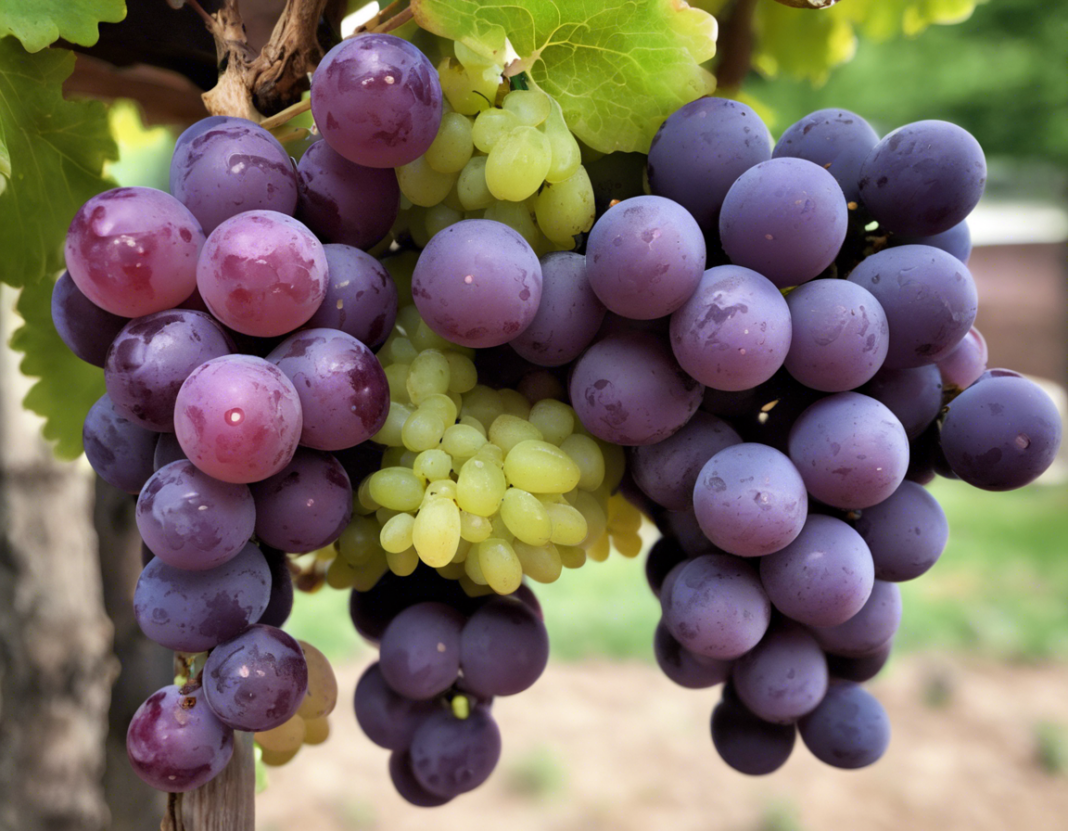Wine making is an ancient art that has evolved over thousands of years. One of the key factors influencing the taste, aroma, and characteristics of a wine is the grape variety used in its production. Grape varieties contribute a distinct flavor profile to wines, making each type unique. However, advancements in technology and genetic engineering have led to the development of modified grape varieties that offer new possibilities for winemakers.
Understanding Traditional Grape Varieties
In traditional wine making, specific grape varieties are chosen based on their unique attributes. Vitis vinifera is the most common species of grape vine used in wine production, revered for its diverse range of flavors and characteristics. Within the Vitis vinifera species, there are thousands of grape varieties, each with its own distinct properties.
Common Grape Varieties in Wine Making
-
Cabernet Sauvignon: Known for its bold flavors of blackcurrant, cedar, and tobacco, this grape variety is commonly used in red wine production.
-
Chardonnay: A popular white grape variety that produces wines with notes of green apple, citrus, and vanilla.
-
Merlot: Often used in red wine blends, Merlot grapes offer flavors of plum, cherry, and herbs.
-
Sauvignon Blanc: Known for its crisp acidity and flavors of tropical fruits and grass, this grape variety is widely used in white wine production.
Introduction to Modified Grape Varieties
In recent years, genetic modification has allowed scientists to develop modified grape varieties with specific characteristics that cater to the demands of consumers and winemakers. These modified grapes may offer higher yields, resistance to diseases, or unique flavor profiles not found in traditional grape varieties.
Benefits of Modified Grapes in Wine Making
-
Disease Resistance: Some modified grape varieties are engineered to be resistant to common grape diseases, reducing the need for pesticides and promoting sustainable farming practices.
-
Climate Adaptability: Modified grapes can be designed to thrive in specific climatic conditions, allowing winemakers to produce high-quality wines in regions where traditional grape varieties may struggle.
-
Flavor Enhancement: By modifying genes associated with flavor compounds, scientists can create grapes that produce wines with enhanced aromas and taste profiles.
-
Yield Improvement: Certain modified grape varieties are bred to have higher yields, ensuring a more efficient production process for winemakers.
Challenges and Controversies Surrounding Modified Grape Varieties
While the development of modified grape varieties offers numerous benefits, it also raises concerns within the wine industry and among consumers. One of the primary issues is the perception of genetically modified organisms (GMOs) in food and beverages. Some consumers are wary of GMOs due to potential health and environmental risks, leading to skepticism regarding wines made from modified grapes.
Controversies Surrounding GMOs in Wine Making
-
Labeling: The lack of mandatory labeling for wines made from modified grape varieties makes it difficult for consumers to make informed choices about the products they purchase.
-
Environmental Impact: Critics argue that the cultivation of modified grape varieties could have unknown consequences on biodiversity and soil health.
-
Quality Concerns: Some traditionalists in the wine industry question whether wines made from modified grapes can achieve the same level of complexity and terroir as those produced from traditional varieties.
Frequently Asked Questions (FAQs)
1. Are wines made from modified grape varieties safe to consume?
Wines made from modified grape varieties undergo rigorous testing to ensure they are safe for consumption. Regulatory bodies around the world set strict guidelines for the approval of modified crops, including grapes used in wine making.
2. How can I tell if a wine is made from modified grapes?
Currently, there is no standardized labeling system for wines made from modified grape varieties. If you are concerned about consuming modified grapes, you can seek out wines labeled as “organic” or “GMO-free.”
3. Do modified grape varieties affect the taste of the wine?
Modified grape varieties can influence the taste of wine by altering the flavor compounds present in the grapes. Some modified grapes are specifically engineered to enhance certain flavor profiles, offering unique tasting experiences.
4. Are modified grape varieties more sustainable than traditional varieties?
Modified grape varieties with disease resistance traits may require fewer pesticides, promoting environmentally sustainable farming practices. Additionally, grapes engineered for climate adaptability can thrive in regions where traditional varieties struggle, reducing the need for extensive water and resource usage.
5. Can traditional and modified grape varieties coexist in the wine industry?
The coexistence of traditional and modified grape varieties is possible in the wine industry. While some winemakers may choose to stick to traditional varieties for their authenticity and terroir expression, others may opt for modified grapes to explore new flavor possibilities and improve crop resilience.
Conclusion
Understanding the role of grape varieties in wine making is crucial for appreciating the diversity and complexity of wines available today. While traditional grape varieties like Vitis vinifera continue to be the backbone of the wine industry, the emergence of modified grape varieties represents a new frontier in winemaking. By exploring the benefits and challenges associated with modified grapes, we can navigate the evolving landscape of wine production and savor the richness of wines crafted from both traditional and genetically modified grapes.

